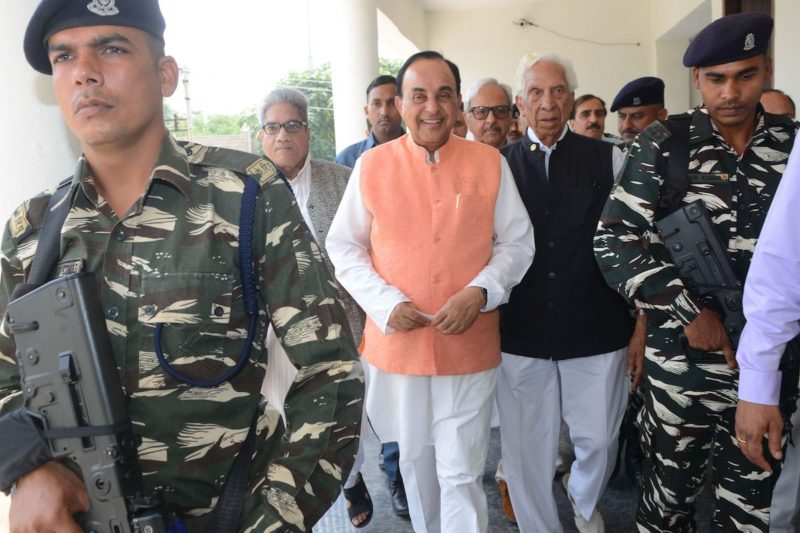MIT, Facing Opposition to Extremist Speaker, Might Try Google Next Time
Swamy, who has been affiliated with right-wing politics in India, is India's version of Louis Farrakhan, Milo Yiannopoulos, or Nigel Farage: a polarizing figure with a long history of demonizing statements.

MIT is drawing criticism from its own faculty and students, as well as activist groups from around the country, over its decision to invite Indian right-wing politician Subramanian Swamy for a symposium this weekend.
Swamy, who has been affiliated with right-wing politics in India, is India’s version of Louis Farrakhan, Milo Yiannopoulos, or Nigel Farage: a polarizing figure with a long history of demonizing statements. India’s Muslim and LGBTQ communities have been particularly targeted by Swamy, and he’s a prolific user of Twitter, underscoring the argument that right-wing septuagenarians and social media don’t mix.
While Swamy is a trained economist, and the conference is on the Indian economy, the MIT backlash shows that organizers of such events should probably just use common sense. In the broader scheme of things, Swamy (whose daughter is married to a Muslim) is a fringe politician with limited influence in India or overseas, but it shows a stunning lack of foresight and context on the part of MIT. Were the conference organizers not aware of what kind of response Swamy would evoke?
Like Farrakhan, Swamy has a loyal cadre of followers who have tried to rationalize his hate speech. But even if one were to acknowledge his economics background, bringing someone with a track record of making homophobic and anti-Muslim comments to one of the world’s most prestigious universities makes little sense. And, in the event that MIT was having trouble finding a conservative economist who hasn’t disparaged marginalized communities, perhaps it ought to think more deeply about that.
In the end, the value of holding the India symposium at MIT will likely be drowned out by the presence of someone who should have never been invited in the first place. At a time when universities continue to weigh First Amendment issues against the inclusive learning environments they purport to uphold, maybe they should just start with a simple Google search before inviting campus speakers.

